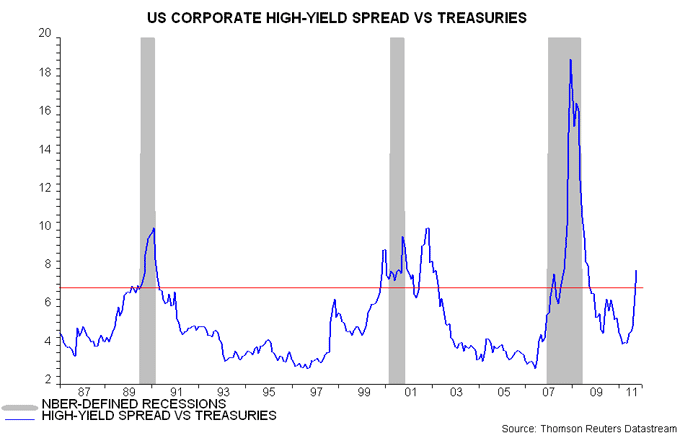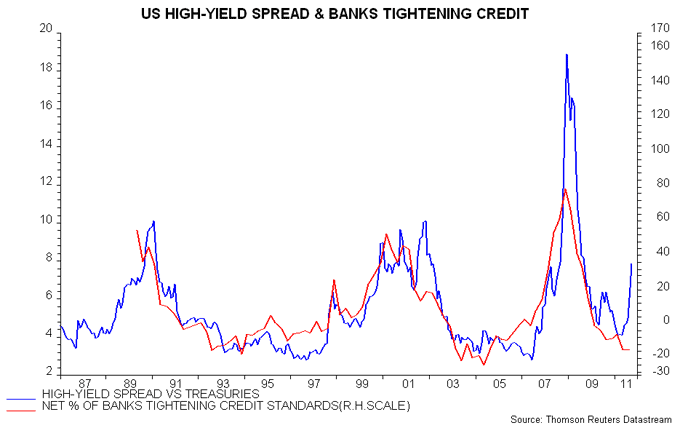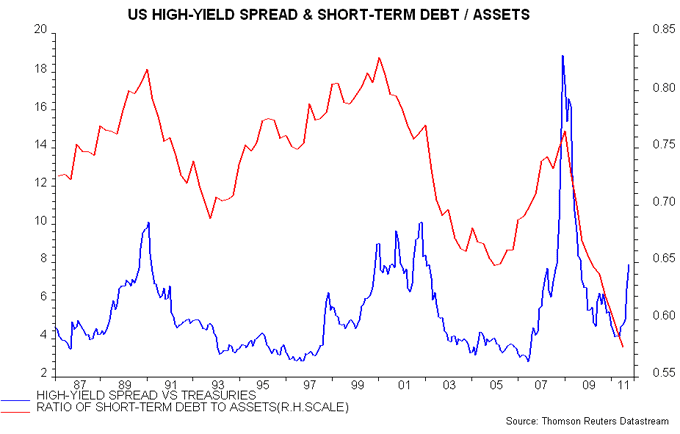Are US junk bonds signalling a recession?
The yield spread of US corporate high-yield bonds over Treasuries has risen above seven percentage points, a level that signalled recessions in 1990, 2000 and 2008:

The spread, however, correlates with the net percentage of banks tightening credit standards on commercial and industrial loans, as reported in the Fed’s senior loan officer survey. As of July, the latter indicator was towards the bottom of its historical range, consistent with a much lower level of the spread. The net tightening percentage would need to surge in the October survey, released in November, to restore a normal relationship between the two series:
A similar divergence occurred in 2002 as high-yield bonds sold off with equities on fears of a “double dip”, while the Fed indicator remained stable. The economy was weak but avoided another recession, with the spike in the high-yield spread fully reversed in 2003.
The recent rise in the spread also sits oddly with improving corporate liquidity. Non-financial business money holdings rose by 15% in the year to June – see previous post. The high-yield spread, historically, has usually narrowed when the ratio of short-term debt to assets* has fallen:

The surge in the spread has probably contributed to US recession calls by several prominent forecasters. The high-yield market, however, may have been “infected” by increased risk aversion due to the sovereign debt crisis, temporarily weakening its relationship with corporate and economic fundamentals.
*Short-term debt including trade payables divided by sum of liquid assets, trade receivables and inventories.

Reader Comments